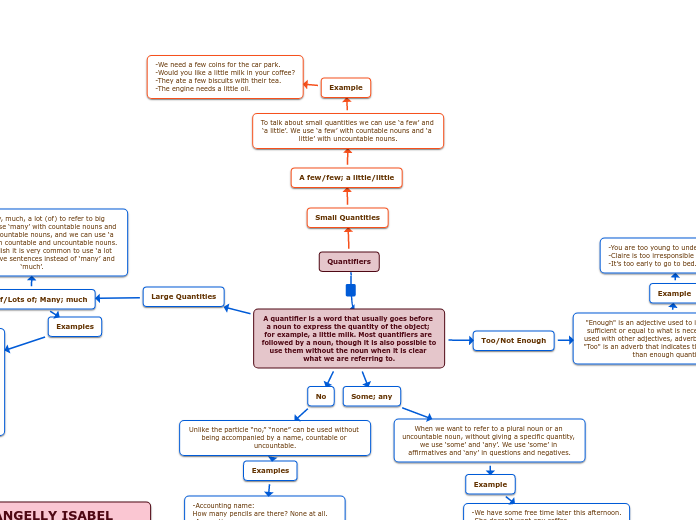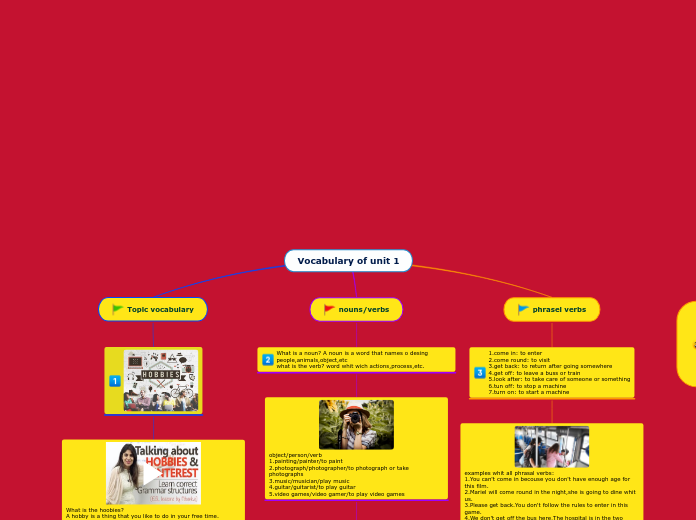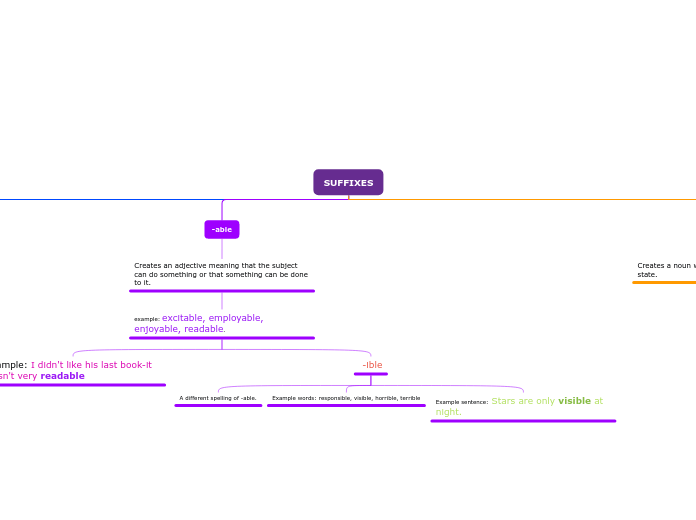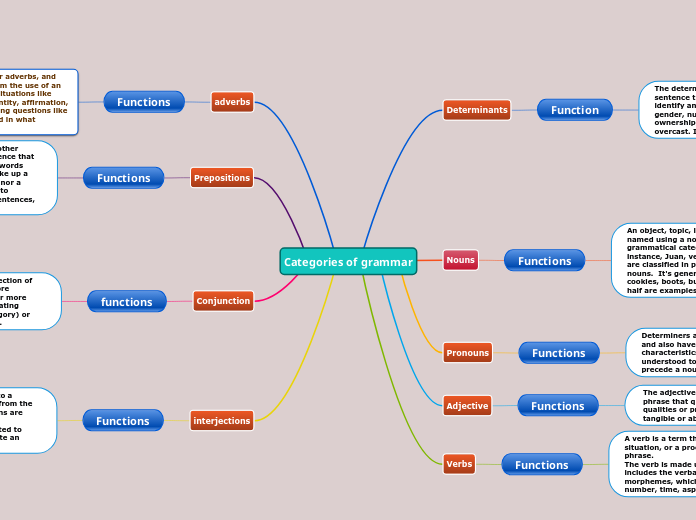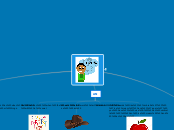ANGELLY ISABEL GODOY CABRERA
Quantifiers
Small Quantities
A few/few; a little/little
To talk about small quantities we can use ‘a few’ and ‘a little’. We use ‘a few’ with countable nouns and ‘a little’ with uncountable nouns.
-We need a few coins for the car park.
-Would you like a little milk in your coffee?
-They ate a few biscuits with their tea.
-The engine needs a little oil.
A quantifier is a word that usually goes before a noun to express the quantity of the object; for example, a little milk. Most quantifiers are followed by a noun, though it is also possible to use them without the noun when it is clear what we are referring to.
Some; any
When we want to refer to a plural noun or an uncountable noun, without giving a specific quantity, we use ‘some’ and ‘any’. We use ‘some’ in affirmatives and ‘any’ in questions and negatives.
-We have some free time later this afternoon.
-She doesn’t want any coffee.
-Do they need any bread?
-I went to some meetings in Rome last week.
-Will there be any managers at the party?
Too/Not Enough
"Enough" is an adjective used to indicate that it is sufficient or equal to what is necessary. It can be used with other adjectives, adverbs, or nouns. And "Too" is an adverb that indicates that there is more than enough quantity.
Example
-You are not old enough to understand. -Claire is not responsible enough to have a dog.
-You are too young to understand.
-Claire is too irresponsible to have a dog.
-It’s too early to go to bed.
Large Quantities
A lot of/Lots of; Many; much
-There are many things to do today.
-We have a lot of time left, don’t worry.
-Many people take the train to work.
-Much Italian wine is sold abroad.
-She plays a lot of sport.
-When we want to emphasize a really big quantity we can add ‘so’ in front of ‘many’ and ‘much’. For example:
-There were so many passengers on the train, it was difficult to get off.
-She had so much work to do, she stayed at the office until midnight.
We use many, much, a lot (of) to refer to big quantities. We use ‘many’ with countable nouns and ‘much’ with uncountable nouns, and we can use ‘a lot (of)’ with both countable and uncountable nouns. In modern English it is very common to use ‘a lot (of)’ in affirmative sentences instead of ‘many’ and ‘much’.
No
Unlike the particle “no,” “none” can be used without being accompanied by a name, countable or uncountable.
Examples
-Accounting name:
How many pencils are there? None at all.
-Accounting name:
There are no pencils.
-Uncountable name:
How much money do you have? None at all.
-Uncountable name:
I have no money.
